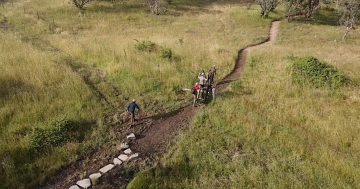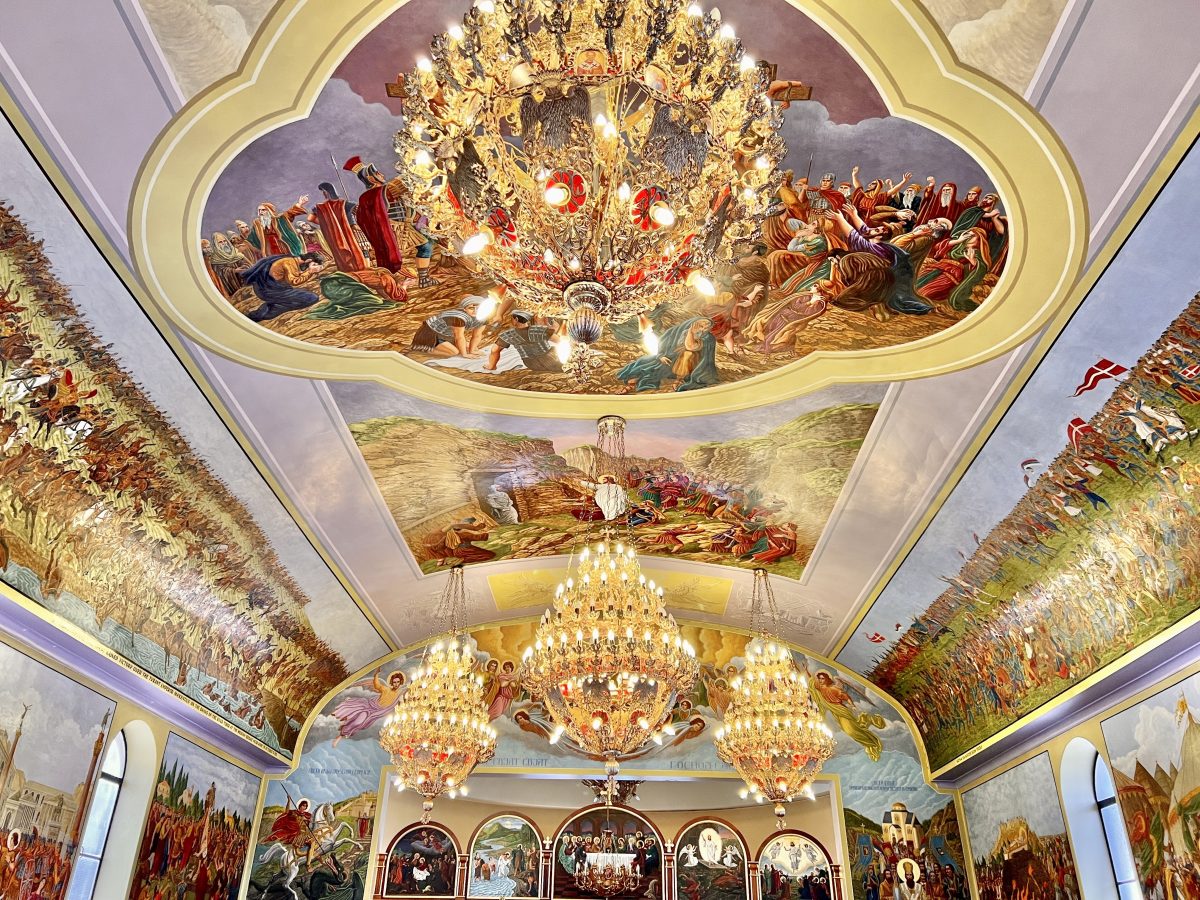
Free Serbian Orthodox Church of Saint George in Forrest. Photo: James Coleman.
It’s an unassuming little white chapel on the outside, the kind you might see in a small country town.
But it’s what’s inside the Free Serbian Orthodox Church of Saint George in Forrest that truly blows minds, to the point it’s earned the name of ‘Canberra’s Sistine Chapel’.
Stunningly detailed murals coat the walls and roof, depicting key scenes from the Bible and Serbian history. These include the crucifixion of Jesus, the raising of Lazarus from the dead, the conversion of the Apostle Paul on the road to Damascus, as well as panels for St George slaying the dragon and a battle between the Turks and the Serbians in 1389 which features thousands of soldiers and hundreds of horses charging down the side of one roof.
These were all hand-painted by Karl George Matzek, who – from age 73 – rose nearly every day at 5 am and ascended a ladder with his imported Dutch oil paints for 16 years.
Milan Kosanovic is a member of the management committee for the church and describes it as the artist’s “gift to God”.
“He was one of the finest artists in Vienna before he came here.”
Karl was born in Austria to Czech parents. The artistic flair came early, and by 16, he claimed to have received a medal from Tsar Nicholas II for his part in painting a panorama of the battle of Borodino. He dabbled in making advertising posters for a circus in California until WWI struck and he was sent off to fight with the Austrian cavalry on the Russian front.
He picked up the passion again after the war, first with a degree from Vienna University and then a job at the Berlin Art Centre. The gold medals for his work then started pouring in from around the world, including Moscow, New York, Paris, Buenos Aires and Rome, before he and his wife moved from Yugoslavia to Australia in 1959.
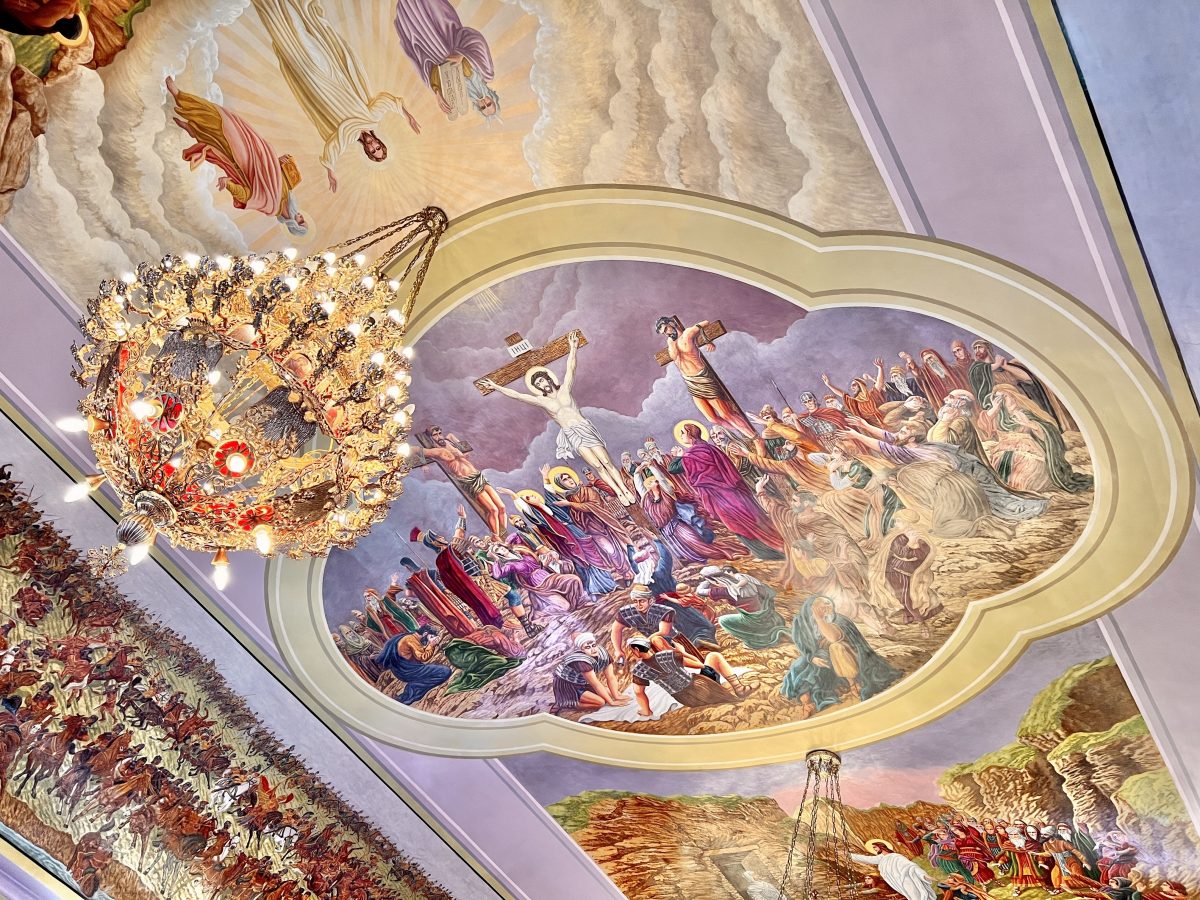
The crucifixion of Jesus, as depicted by Karl George Matzek. Photo: James Coleman.
From here, he was commissioned to do paintings for a monastery in Perth, followed by more work for the Free Serbian Church in Cabramatta, Sydney.
The Canberra church got on to him too, asking him to paint icons for the wood partition between the altar and the rest of the hall.
“His wife was Serbian and he knew Serbian very well,” Milan says, explaining Karl’s affinity to the church.
Karl stuck around to help install the partitions but then offered to spend the rest of his life leaving a glowing oil-painted legacy on the ‘canvas’ of the 6.8-metre-high ceiling and walls.
He estimated the job would take four or five years – it ended up taking 16 years, with Karl living in a small flat behind the church and on a meagre pension the entire time, completely divorced from his home and family.
“He did it for nothing – from his heart, not for money,” Milan says.
In 1976, Karl went on the record as stating, “I would like to be remembered for doing something for people to enjoy and for this wonderful [free] country”.
It was also “his last job” – the great artist died in 1983 and was buried in the St Sava Monastery cemetery in Hall.
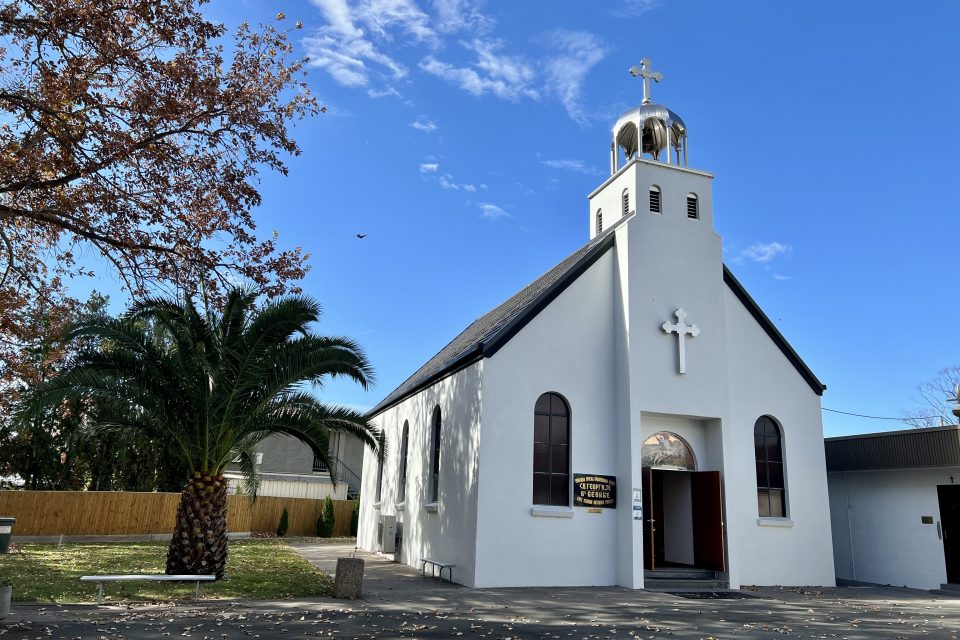
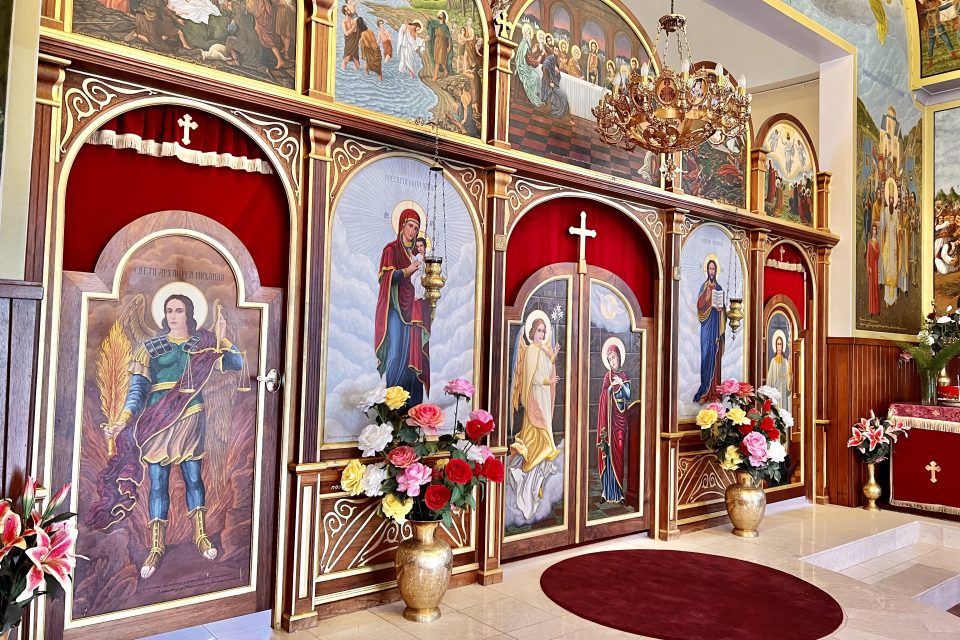
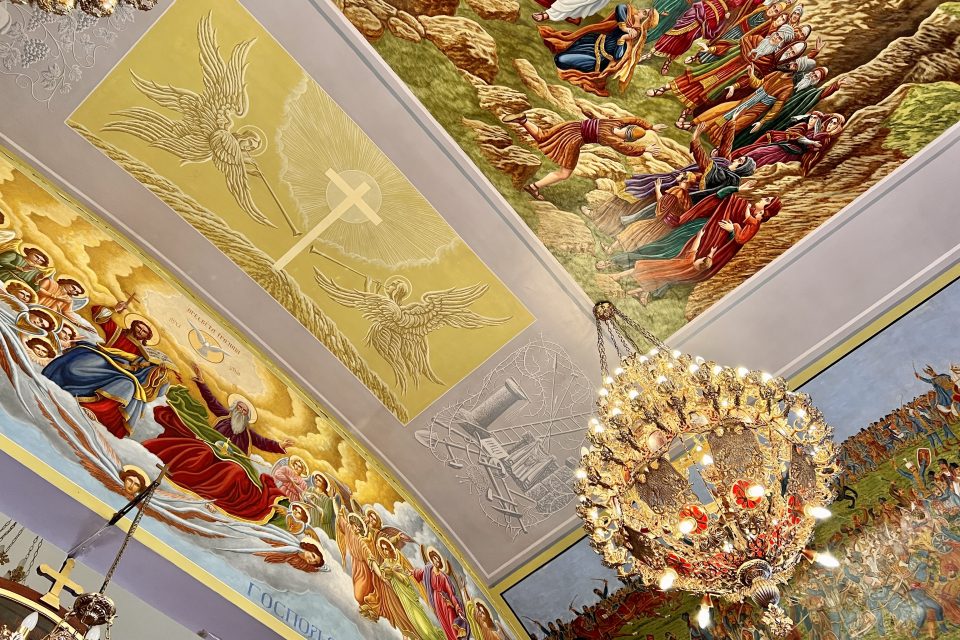
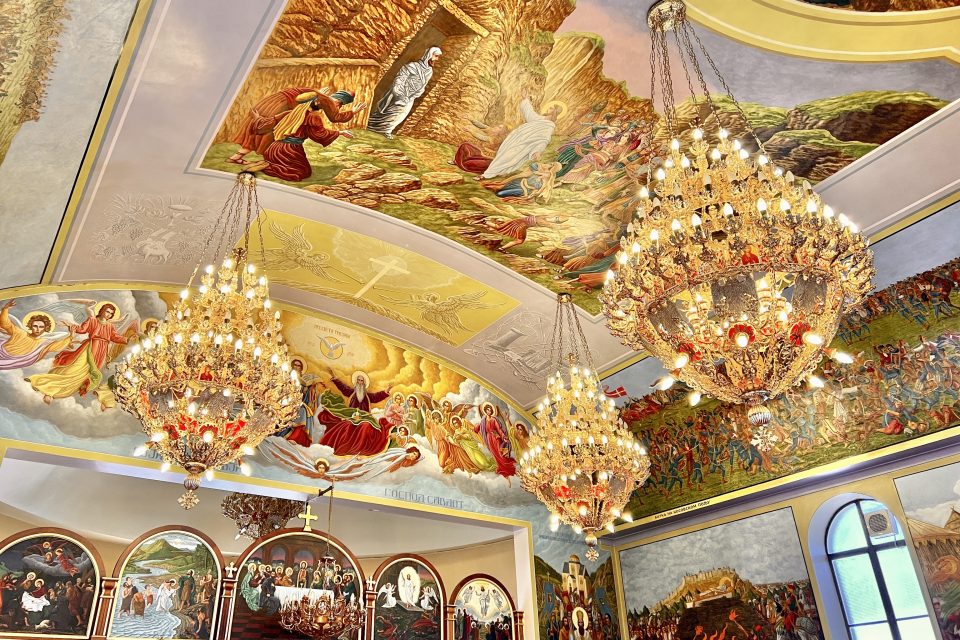
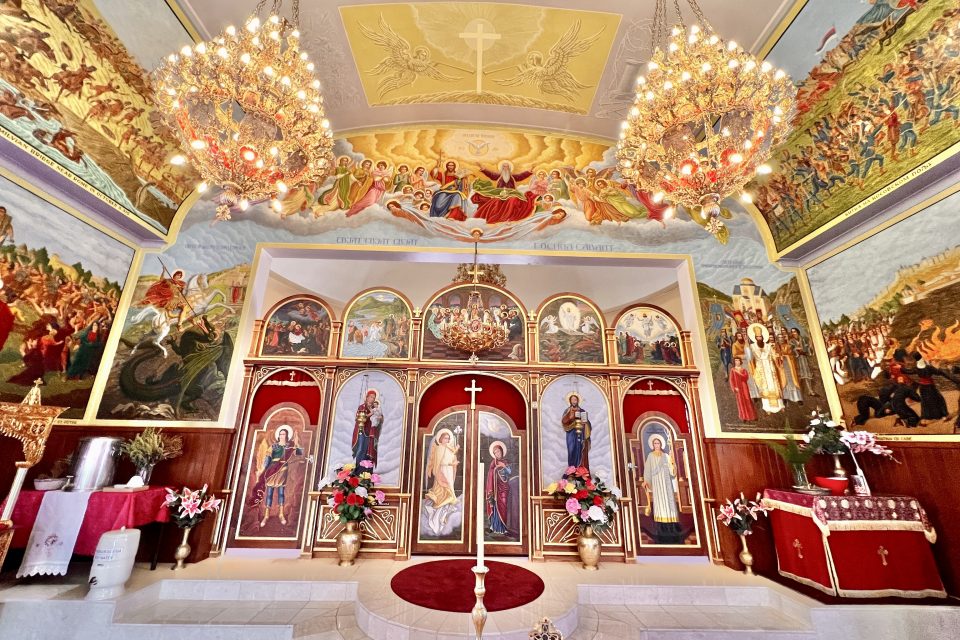
Since then, Milan and the rest of the church members have done their best to conserve his memory and work with help from ACT Heritage. They received an $11,000 grant from the ACT Government in 2020 to fund new chandeliers, but Milan says the murals have aged well.
“They’re still in good condition – we haven’t had to do anything to them.”
Pictures and words fail miserably to do the murals justice, which is why the church doors were opened on Saturday, 29 April, for the Canberra and Region Heritage Festival so members of the public could come in to ogle them.
And this is also how we got some video:












